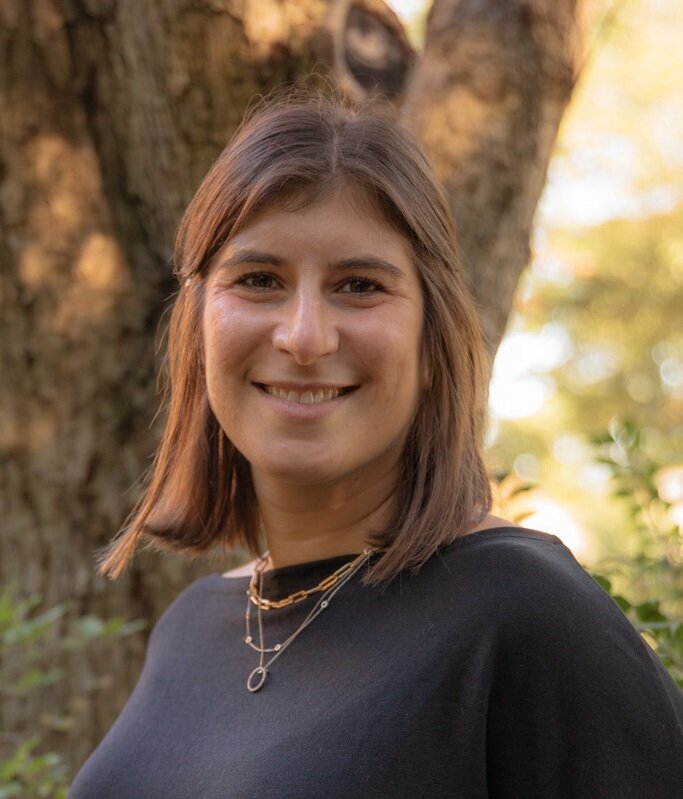The Ten Commandments. For some this brings to mind two rugged stones etched with Hebrew writing, or perhaps beautiful Judaica depicting Moses receiving the tablets, or watching an iconic young Charlton Heston portraying Moses in the classic film. Whatever comes to mind, the Jewish people receiving the Ten Commandments in parashat Yitro is certainly an epic moment in the history of the Jewish people that shaped our lives in many prolific ways.
The commentaries point out that the Ten Commandments were engraved on two tablets — five on the first and five on the second. The first tablet contains mitzvot (commandments) that are bein adam lamakom / between a person and God, while the commandments on the second tablet are about relationships bein adam l’chaveiro / between one person and another. This means that the fifth commandment, “Honor your father and your mother,” belongs to the category of “between God and a person” which we learn from the Talmud is because God, in addition to our parent/s, plays an essential role in shaping who we are. Honoring our parents, therefore, inspires God to say: “I consider it as though I had dwelt among them and they had honored Me.” (Talmud, Kiddushin 30b)
If we subscribe to this idea of the two tablets holding different types of commandments, the dichotomy between the two is fascinating. The commandments between people are entirely written in the negative “thou shall not” and are universally accepted in both our modern legal system and by most religions as things we should not do — murder, steal, commit adultery. However the commandments between a person and G-d are written in both the positive and the negative and are less universally accepted. Some examples are observing Shabbat and believing in only one God. Certainly these commandments are ones that Jews subscribe to at varying degrees but not necessarily ones that other people and religions subscribe to. This shows us that our relationship with God is special and those specific five commandments are ones that set us apart from other religions.
In the age of COVID-19, I would argue that the commandments between us and God are more difficult now than ever before. We are living through an unspeakably difficult time, a pandemic. Belief in God is something that many people wrestle with when things are “normal.” Now as we watch so many people suffer and lose their loved ones, how can we maintain our faith? I have no answer here except that I continue to remain hopeful that God has a plan for all of us and that we will continue to come together as Jews and as humans to get through this difficult time.
Another of these commandments is protecting Shabbat and keeping it holy. Again, the pandemic is making this difficult. Shabbat is supposed to be a day that feels and looks different than every other day. However, when we are all reliving “Groundhog Day” each morning as we wake up and continue our not-so-new way of living — wearing our pajamas all day, not leaving the house, not gathering much with others — do we really have enough separation between Shabbat and other days for it to be special? For some of us we are not working, not using electricity or driving, but the day essentially looks the same because we are not attending shul, not having seudah sh’lishit (traditional third Shabbat meal) with friends, not celebrating the day as we used to do. We must work harder than ever to find ways to continue to celebrate and make Shabbat special, in addition to all the other responsibilities and challenges we have during the pandemic.
The last commandment I’ll bring up is honoring our parents. Again, here we find this more difficult as many of us struggle to coexist in a household with our parents, and certainly for those of us with children (of any age) living at home, we know that often we do not feel respected or honored by our children as we are spending more time than ever before with them within the four walls of our home. Alternatively, for those of us with family members living outside our homes, we may feel disconnected or unhelpful as we struggle to support and honor them from afar. Yet there are silver linings to be found for those of us with family at home — having time we didn’t expect to have together, and special moments shared — baking cookies, playing in the snow, putting together puzzles — that may not typically occur if it were a “normal” year.
My takeaway from all this is that much like everything in a pandemic, we have to work that much harder to continue to live God’s commandments (especially the ones between us and the Divine) during this time. And when we really take the time to do so, our lives will be enriched, whether it’s reconnecting with our faith, enhancing our Shabbat experience, or taking the time to honor our parents and children. Shabbat Shalom.







